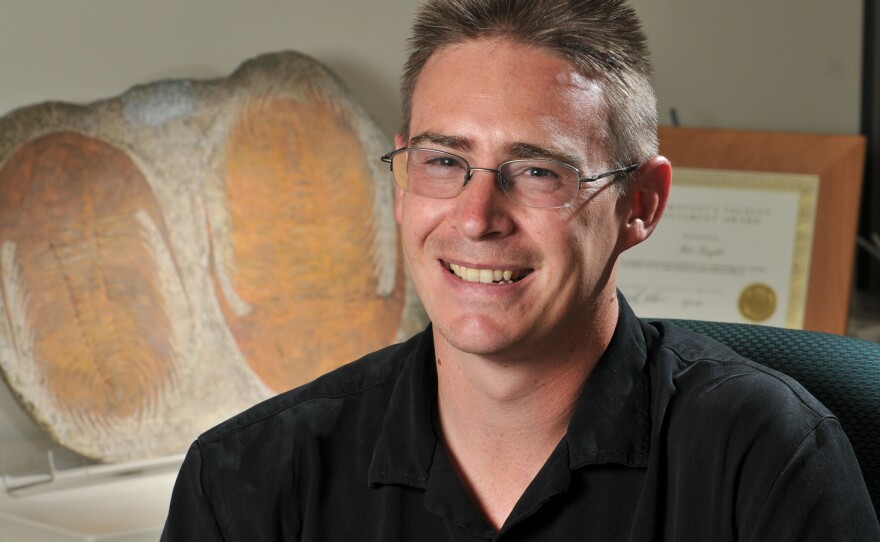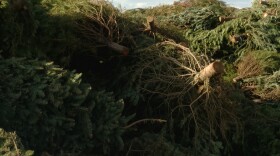Anyone who's seen an episode of "CSI" knows that crime scene investigators look at a host of biological evidence, like DNA or fingerprints, when they come across an unexplained dead body.
In a new study, San Diego scientists say investigators might want to look at another powerful clue: microbes.
UC San Diego's Rob Knight, who co-led the study with Jessica Metcalf of the University of Colorado, told KPBS, "There's a very real possibility that the next generation of forensics will be based not just on human DNA — where we're all 99.99 percent the same anyway — but on our microbial DNA, where we can be 90 percent different from one another."
The study, published this week in Science, focuses on decomposer microbes. These bacteria are always present in the human body and in the environment at low levels.
Upon death, they proliferate and begin turning vertebrates into fertilizer. By studying mice and human cadavers, the researchers found that microbial communities in dead bodies develop in a very predictable way as the decomposition process unfolds.
The scientists were able to estimate when a body died, with a two to four day window of accuracy, by analyzing these decomposer microbes. They showed that microbes could also provide clues about where a body died, and whether or not it had been moved after death.
The study involved setting out human cadavers to decompose in an outdoor forensic lab at Sam Houston State University in Texas. The bodies were donated by people who wanted to aid forensic research.
When Knight visited the scene, he was impressed by the donors' generosity in signing up for these somewhat grizzly experiments.
"Being surrounded by human bodies in different states — from having been freshly placed, all the way to being essentially skeletonized — is a really unique experience," Knight said. "The smell I would also characterize as unique in my experience."
Knight mainly focussed on the process of sequencing the microbial DNA swabbed from these corpses. He says it was a natural extension of his work with the American Gut Project, which sequences living people's microbiomes to explore how the trillions of microscopic organisms living on and inside our bodies may be influencing our health.
"The potential to take these techniques and use them to help both the living and the dead is tremendous at the moment," said Knight.
Knight predicts that forensic scientists will start sequencing microbial DNA at crime scenes in the next five to 10 years.
"It's very plausible that you could develop a unit that you could take out to a crime scene, and do the analysis right then," he said.






